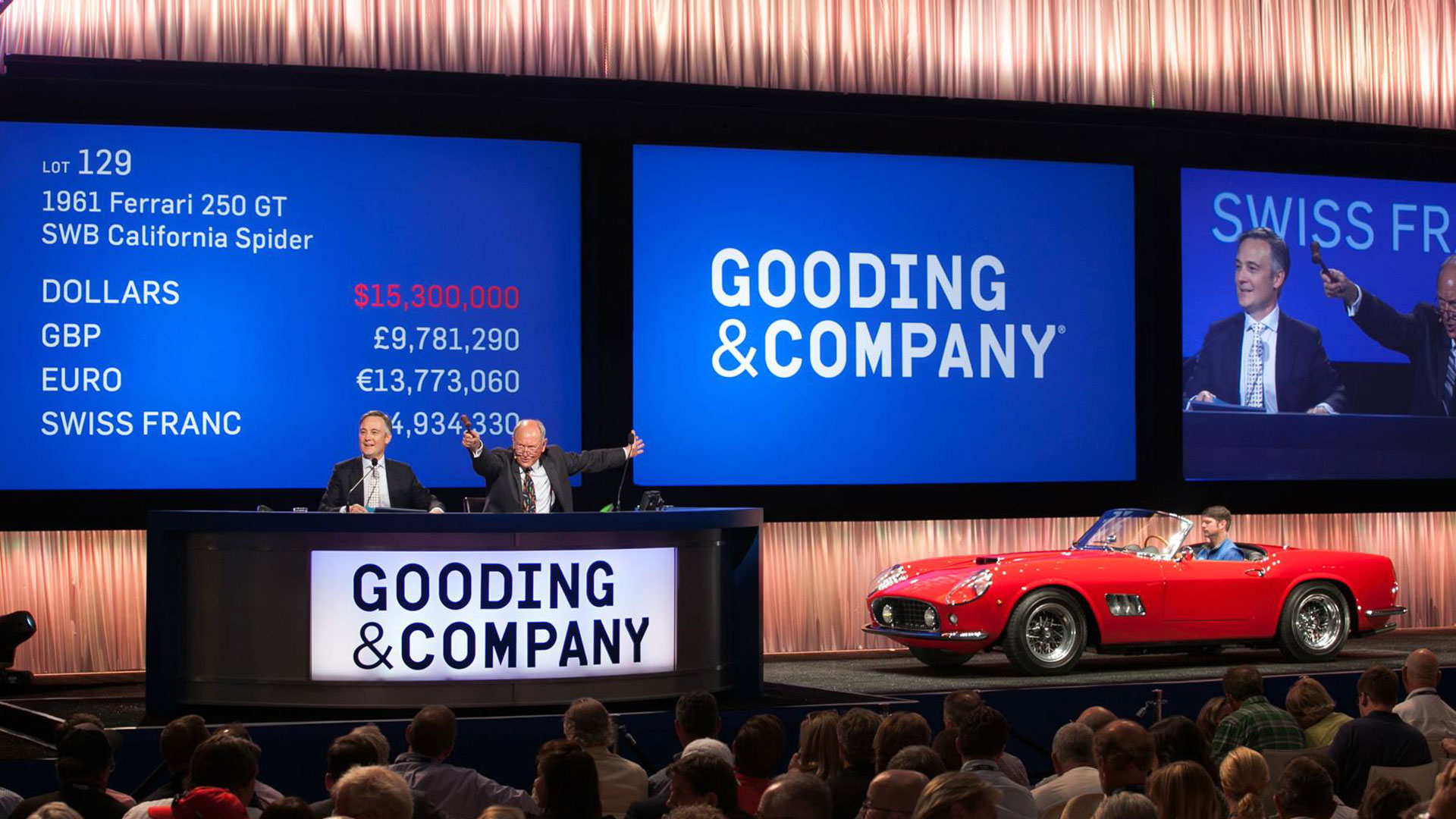

We may earn revenue from the products available on this page and participate in affiliate programs. Learn more ›
David Gooding looks satisfied, and he should be. Several nights ago he set a personal record by selling over $60 million in cars at his auction, including $17 million dollars for a single Ferrari and well over $20 million for a passel of cars owned by comedian Jerry Seinfeld. But I’m not hunting for seven- or eight-figure vehicles here on the golf course lawn of the oceanfront Ritz Carlton, where the Ameila Island Concours d’Elegance is held each year. I’m looking for bargains, and other trends, in the collectible car market.
As quickly as Lamborghini’s most iconic models may be appreciating, Gooding believes that some deals might be available from the charging bull brand. Having just established their PoloStorico heritage department to certify and restore historic cars from Sant Agata’s fifty year past, Gooding expects to see the kind of concomitant rise in prices that brands like Ferrari and Aston Martin see after cars they’ve restored in-house come to auction. “It will take a bit of time, but an increase will definitely happen in the Lamborghini market,” he says. “Miuras and Countaches will be first, but models like the Espada will likely follow, much like the 308s and Dinos have at Ferrari.”

Stately British cars may be a better bet. “I would say there’s a lot of value in Rolls-Royces and Bentleys from the Sixties and Seventies. You can get a perfect Silver Cloud or Silver Shadow for the low to mid five figures, and those car were usually impeccably maintained, with rich interiors, and they drive very much like a modern vehicle.” Bonus: you’ll look like a baller.
Preservation cars—those that haven’t been restored and maintain their originality and patina, even decrepitude—are another potential growth area. Though the classic car market has finally begun to recognize the added value of such cars, it hasn’t yet caught up with the prizing of originality in other categories of vintage products like furniture, paintings, and antiques. “As much as people are beginning to appreciate preservation, I think we’re going to see even more. The differential between restored and unrestored cars will continue to grow, and could potentially become huge.”
A similar differential is growing between what Gooding somewhat humorously calls “mundane” and “special” versions of blue-chip cars from the classic era in the 20s and 30s. “An average Hispano Suiza has become much harder to sell,” he says, by way of example. He then points out two Packards, sitting on the lawn side by side. Built on identical chasses, one is a factory-bodied coupe, the other customized when new with a body by famed American coachbuilder Dietrich. “The regular car would be a low six-figure car,” he says. “The custom coupe, would probably sell for $3.5 million.”

He notes a similar situation in comparing two classic Rolls-Royce Phantoms. He points out a “run of the mill” closed car next to a specially bodied drophead coupe. “The car on the right would be $150,000. The car next to it, which I sold recently, went for over $1.5 million. Twenty or twenty-five years ago, the prices for those two cars would have been far closer together, barely separated at all.”
Gooding credits a changing demographic, and greater discernment with in the hobby. “Younger buyers who are coming into classic cars, if they’re going to purchase a Duesenberg, they want the very best one and they’re willing to pay for it. They want something that stands out, that tells a story. Special Duesenbergs are selling for prices that are higher than ever. Lesser ones have seen their value come down a bit.” Maybe now is the time to get that Duesey I’ve been wanting since my Bar Mitzvah.

Thinking about the Seinfeld sale, we wonder if it’s worthwhile to pick up a car with notable celebrity provenance, since this often seems to nab a premium. “It depends on the car, and on the celebrity,” he says, pointing out that some of Jerry’s cars sold for above market, some below. Certainly the fact that the 1960 VW Beetle he sold for an outrageous $120,000 was helped by the fact that it belonged to Mr. Seinfeld. (It was also an extremely original and unrestored car.) “That doesn’t mean all original Beetles are now worth $120,000. But everyone will think theirs is—I’ll be getting lots of calls from Beetle owners, I’m sure,” Gooding says.
“But,” and here he points to a Packard purported to have been owned by the original “Blonde Bombshell,” 1930s movie star Jean Harlow. “A lot of people our age and younger haven’t heard of Jean Harlow.”
